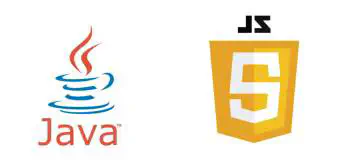Learn JavaScript
 JavaScript
JavaScriptJavaScript is the core language of web development, widely used for creating dynamic web applications and implementing server-side logic. In this section, we will explore the features, basic syntax, and applications of JavaScript.
Features of JavaScript
- Dynamic Programming Language: Supports dynamic typing where the variable’s data type is determined at runtime.
- Event-Driven Programming: Provides powerful functionality for handling events, allowing the creation of interactive web applications.
- Event-Driven Programming: Effectively handles asynchronous operations through callbacks, Promises, and await
- Cross-Platform: Can be executed both in browsers and on the server (Node.js), making it versatile for various environments.
- Rich Libraries and Frameworks: Enhances development productivity with various frameworks and libraries like React, Angular, Vue.js, and jQuery.
Basic Syntax
The basic program structure of JavaScript is simple. You can write code directly in the browser’s developer tools console or in an HTML file.
console.log("Hello, World!");
let number = 10; // Number
const price = 19.99; // Constant
let text = "JavaScript Programming"; // String
let isJavaScriptFun = true; // Boolean
// Conditional statement
let number = 10;
if (number > 0) {
console.log("number is positive.");
} else {
console.log("number is negative.");
}
// Loop
for (let i = 0; i < 5; i++) {
console.log(`Count: ${i}`);
}
JavaScript Applications
- Frontend Development: You can build complex user interfaces using frameworks like React, Angular, and Vue.js.
- Backend Development: Write server-side logic and communicate with databases using Node.js. Examples: Node.js, Express.js.